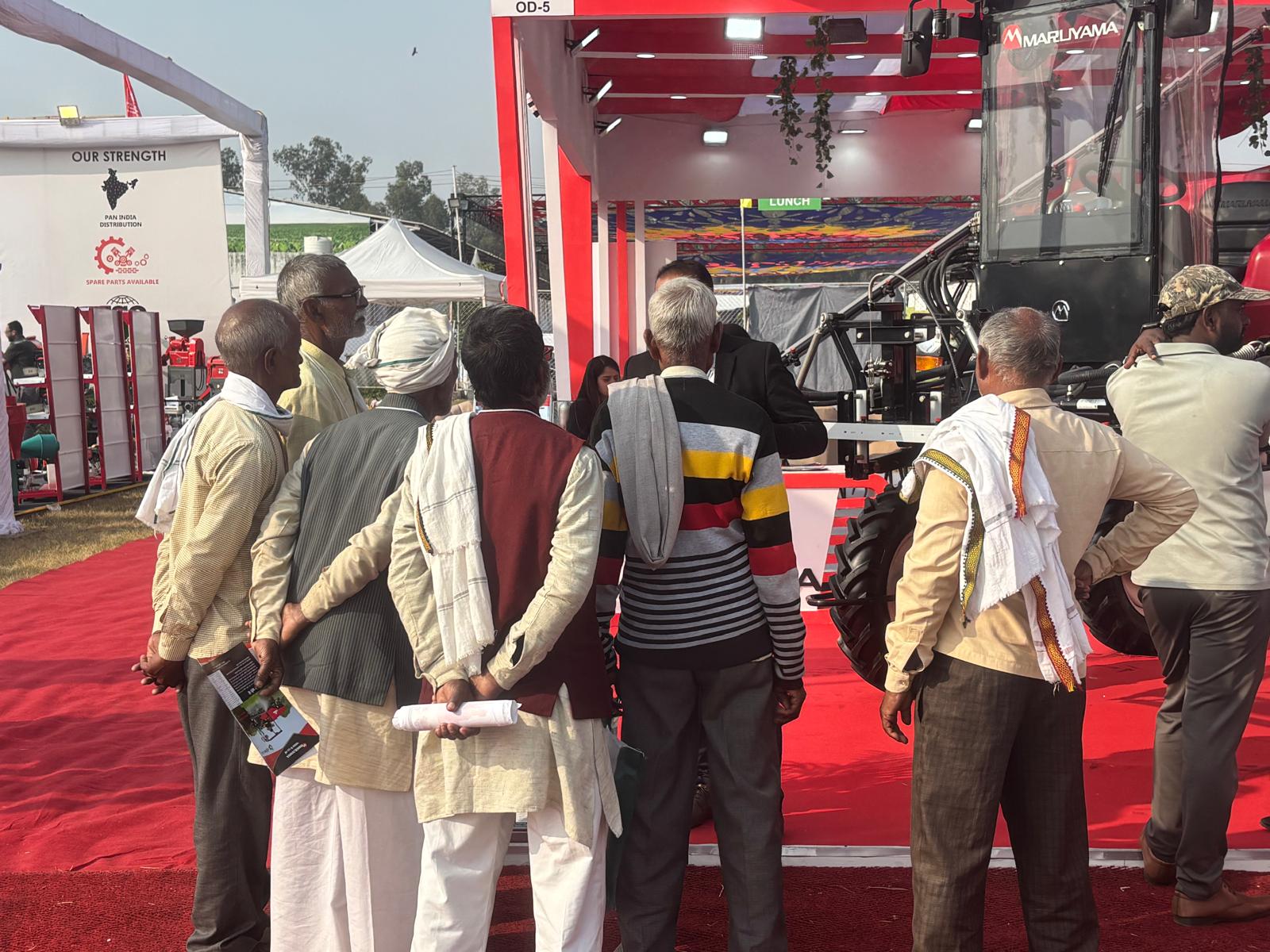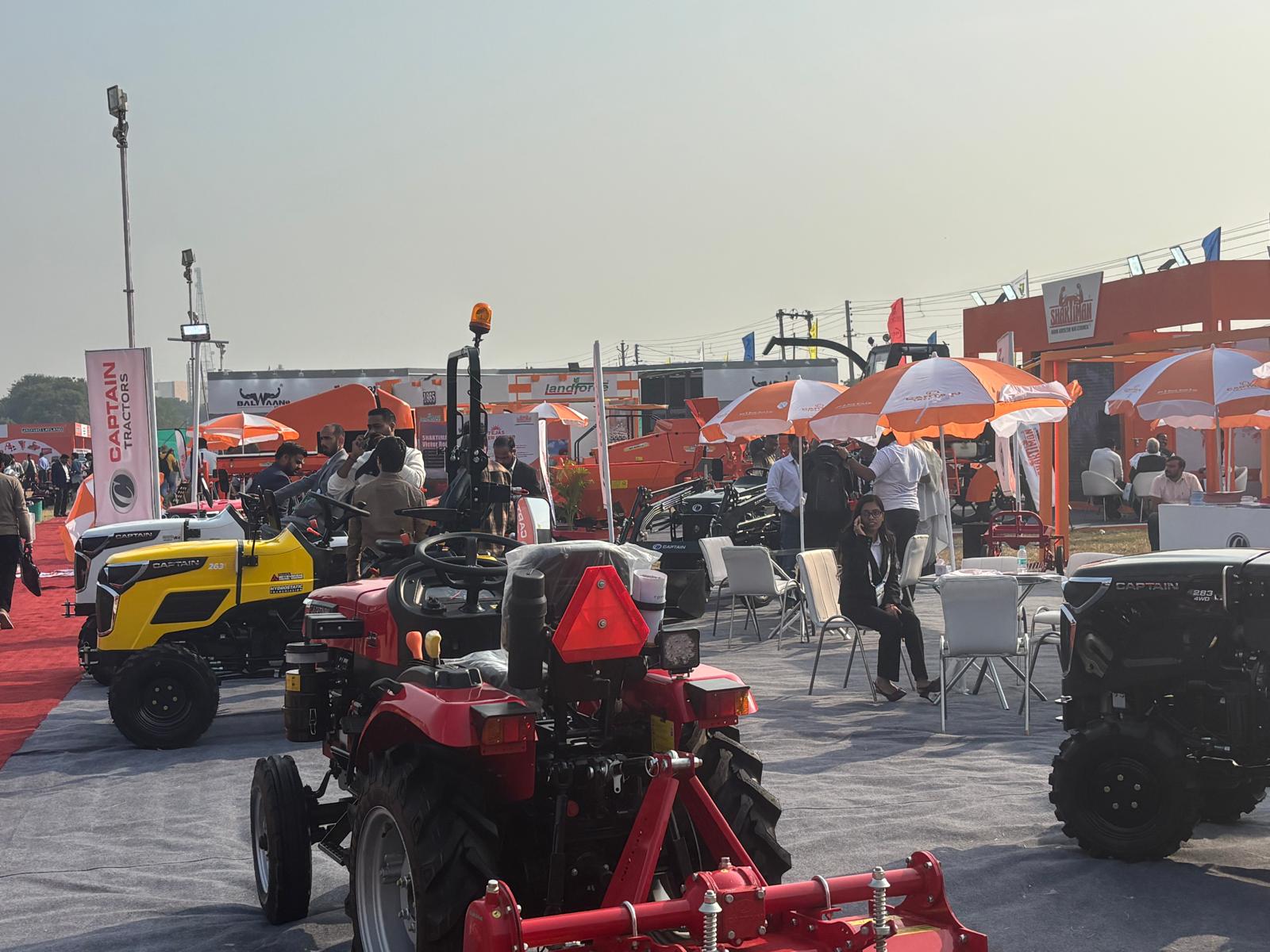محورهای روز افتتاحیه EIMA Agrimach در دهلی نو/ هند اکنون بزرگترین بازار تراکتور جهان است
با سیاست های حمایتی دولت فدرال هند، قدرت مکانیکی بخش کشاورزی در واحد سطح، طی دوره ۲۰۱۷-۱۹۷۵ حدود ۶۰۰ درصد افزایش یافته

تلویزیون اینترنتی کشاورزپلاس به نقل از دفتر مطبوعاتی فدراوناکوما:
اقتصاد کشاورزی هند در سالهای اخیر در مسیر رشدی شتابان قرار گرفته؛ رشدی که با مکانیزه شدن بسیاری از عملیات مزرعه ممکن شده، اما همچنان تحتتأثیر شکافهای گسترده منطقهای و تفاوت نیازهای فناورانه در کشتهای مختلف است. «نوآوری» در این میان بهعنوان موتور اصلی توسعه مطرح شد؛ موضوع محوری نشست افتتاحیه نمایشگاه EIMA Agrimach در دهلینو.
کشاورزی یکی از ارکان حیاتی اقتصاد هند است؛ سهم ۱۸ درصدی در تولید ناخالص داخلی و اشتغال حدود نیمی از نیروی کار کشور، همراه با جایگاه این کشور در فهرست بزرگترین تولیدکنندگان محصولات غذایی جهان، اهمیت این بخش را برجسته میکند.
سیاستهای حمایتی دولت فدرال طی سالهای گذشته نقش مؤثری در جهش مکانیزاسیون داشته است. قدرت مکانیکی در واحد سطح طی دوره ۲۰۱۷-۱۹۷۵ حدود ۶۰۰ درصد افزایش یافته و از ۰.۳۶ کیلووات در هکتار به ۲.۴۸ کیلووات در هکتار رسیده است. هند اکنون بزرگترین بازار تراکتور جهان است و بین سالهای ۲۰۲۱ تا ۲۰۲۴ سالانه بیش از ۹۰۰ هزار دستگاه تراکتور در آن به فروش رسیده است. با این حال، فرایند مدرنسازی کشاورزی در این کشور همچنان ناتمام است و برخی مناطق و الگوهای کشت، از نظر سطح فناوری با نیاز واقعی خود فاصله قابل توجهی دارند.

این چالش محور اصلی نشست «نوآوری اثرگذار؛ مکانیزاسیون کشاورزی در پاسخ به نیازهای کشاورزان» بود که در نخستین روز نمایشگاه بینالمللی ماشینآلات و فناوریهای بخش کشاورزی هند و آسیای جنوبشرقی برگزار شد.
در این نشست، مقامات دولتی و مدیران ارشد شرکتهای بزرگ از جمله پرامود مهرادا (وزارت کشاورزی هند)، اس.ان. جا (شورای تحقیقات کشاورزی هند)، تی.آر. کسوان (گروه TAFE)، راجیف واهی (Captain Tractors)، رامن میتال (ITL)، آنکیت چیتالیا (KisanKraft)، آروین کومار (Jadhaolayland)، پانکاج سینگ (CNH) و نیتیش آرورا (NRDC) حضور داشتند. اداره جلسه را گونا ناند شوکلا از شرکت مشاوره PwC بر عهده داشت.
سخنرانان با تأکید بر نقش تعیینکننده فناوریهای نوین، اعلام کردند که تجهیز کشاورزی به ماشینآلات پیشرفته و سیستمهای نسل جدید میتواند علاوه بر افزایش بهرهوری و تابآوری، پایداری تولید را نیز تضمین کند.
در شرایطی که جهان با رشد جمعیت، تغییرات اقلیمی و فشار بر منابع روبهرو است، فناوری در نقش یک شتابدهنده توسعه، بیش از هر زمان دیگری برای کشاورزی اهمیت دارد.
منبع: Press Release No. 7/2025
EIMA Agrimach: Themes of the Opening Day
Keshavarz Plus Iran Internet TV, citing the Federacoma press office:
India’s agricultural economy is experiencing a period of strong growth, made possible by the mechanisation of many farming operations, yet it remains affected by the disparities between different regions of the country and the varying types of crops. Innovation is a fundamental growth accelerator, essential for ensuring the sector’s resilience and productivity, as well as its sustainable development. This was the central topic of the opening conference in New Delhi.
The agricultural sector is one of the cornerstones of India’s production system. Agriculture contributes 18% to the country’s GDP and employs around half of the total workforce. The subcontinent is also among the world’s leading producers of food commodities. The remarkable development of the agricultural economy in recent years has also been supported by federal government policies that have encouraged the purchase of agricultural machinery. Between 1975 and 2017, the level of mechanisation increased by 600%, rising from an average of 0.36 kW/ha to 2.48 kW/ha. Today, India is the world’s largest market for tractors, with more than 900,000 units sold annually between 2021 and 2024. However, despite substantial investments in mechanical equipment, the modernisation of Indian agriculture remains an ongoing process. The country still needs to bridge a significant gap between its different regions and crop types, some of which display technological levels that are inadequate for their actual needs.
This issue was the focus of the conference entitled “Innovating with impact: farm mechanisation technology addressing farmer challenges,” held on the opening day of EIMA Agrimach, the international exhibition of machinery and technologies for the primary sector in India and Southeast Asia.
The event featured the participation of Pramod Mehrada, Additional Secretary at the Indian Ministry of Agriculture and Farmers’ Welfare; S.N. Jha, Deputy Director General of the Indian Council of Agricultural Research (ICAR); T.R. Kesavan, Director and Group President of TAFE (Tractors and Farm Equipment Limited); Rajeev Wahi, CEO and Head of International Business at Captain Tractors; Raman Mittal, Joint Managing Director of International Tractors Limited (Sonalika & Solis); Ankit Chitalia, Managing Director of KisanKraft; Arvind Kumar, Director of Jadhaolayland; Pankaj Singh, Head of Institutional Sales at CNH; and Nitish Arora, Director of the Sustainable Transport and Energy Department at the National Research Development Corporation. The session was moderated by Guna Nand Shukla, Director at the consultancy firm Pwc.
During the meeting, speakers focused particularly on innovation in the agri-mechanical sector. Through the adoption of mechanical equipment and next-generation systems, they explained, the agricultural economy of the subcontinent can not only increase productivity and resilience but also ensure the sustainability of production. Technology therefore represents a powerful accelerator of growth, one that is all the more important given the major challenges the agricultural world must face today, from global population growth to combating the effects of climate change.
New Delhi, 28 November 2025





دیدگاه تان را بنویسید